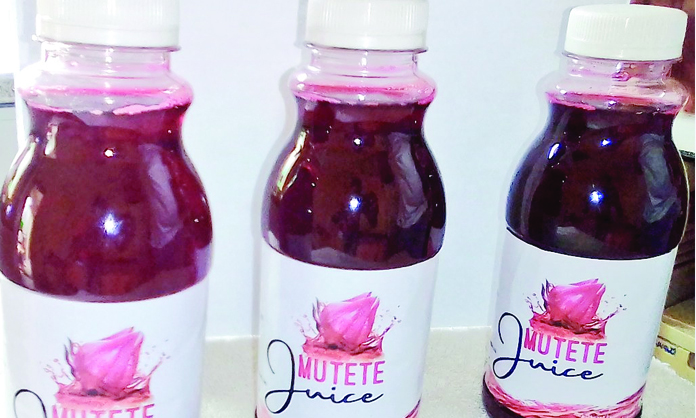The founder of Mutete Juice, Fredrick Shipipa, is encouraging Namibian farmers to also tap into the mutete market.
Shipipa, who is the managing director of Mutete Juice’s parent company, MYM Trading CC, says there is a market for this plant, as various parts of it are sourced by local food, tea and beverage producers.
“Sometimes there is a shortage, especially of the mutete flower, well known as ‘calyces’. But Namibia offers a conducive environment for mutete to thrive,” he says in a press release yesterday.
Shipipa says because of the recurring shortage, he has become an advocate for more farmers to become producers of mutete or Hibiscus sabdariffa.
He says his company is ready to provide old and new mutete growers with training.
“In February, there was a shortage of dried calyces, and we had to import 100kgs from Zimbabwean farmers,” he says.
Shipipa says he empowers farmers, including subsistence farmers, by rewarding them for supplying MYM Trading with mutete, and also employs more than 10 Namibians.
This includes qualified food scientists and quality experts among other professionals.
Mutete juice is currently sold in over 15 supermarkets in Namibia, and demand is growing, he says.
Shipipa says mutete juice contains no preservatives or additives.
Kavango-based mutete farmer Theophilus Hamukoto says he too runs out of the plant’s flowers at times and needs more players in the market.
“People in remote areas don’t want to share their mahangu fields with mutete plants,” he says, adding he supplies other mutete manufacturers too.
Hamukoto says he has been supplying MYM for the past three years.
“Farmers need to embrace change and diversify. One can plant mahangu on this side and mutete the other side. The buyers are there,” he says.
The plant grows in forests and thickets in the Windhoek region, from Opuwo to Oshakati, in the Etosha National Park and in some areas of the northern Kalahari Desert.
“Also, the fact that the flowers are cooked and eaten by locals, more especially in the Okavango Delta, adds another unique feature to the plant.
“Mutete has also been used to make jam and tea products, thus the need to plant it more widely in Namibia to avoid manufacturer shortages.
“Because mutete plants require lots of sunshine, moderate watering and are frost hardy, it is not complicated for locals to grow them in large quantities.
“Namibia has lots of sunshine, and the moderate watering requirement allows even those with limited water supply to plant them,” Shipipa says.
Stay informed with The Namibian – your source for credible journalism. Get in-depth reporting and opinions for
only N$85 a month. Invest in journalism, invest in democracy –
Subscribe Now!






